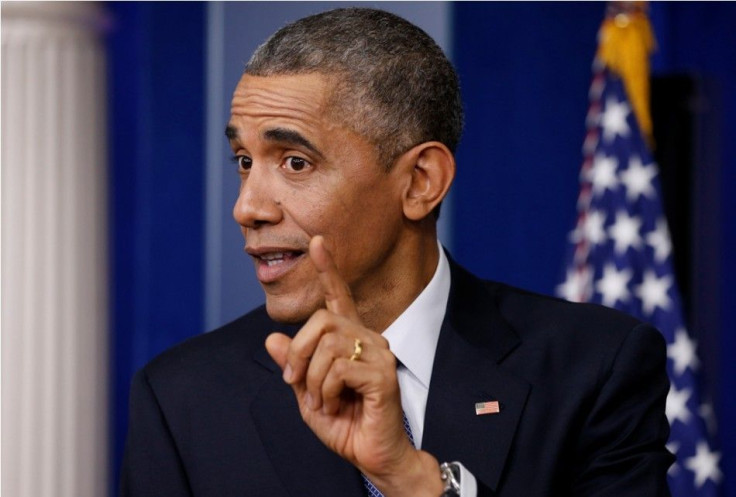Obama to Veto Keystone XL Bill This Week: Republicans Determined To Make More Attempts To Secure the Pipeline’s Approval

With the U.S. Senate sending the Keystone XL pipeline bill to President Obama on Tuesday, the much touted Veto on the bill is on its way as a show of strength by the president. When the bill reaches the president’s desk, it will start a constitutional clock, by which the president must either sign or veto the legislation. But, given the stated position of Mr Obama to veto the measure, if it reaches his desk, before the State Department's final report, veto is almost a foregone conclusion.
The pipeline project envisages carrying oil from Canada to Gulf Coast refineries. Supporters say the project will create tens of thousands of jobs in the U.S. and free the country from its dependence on foreign oil. But, critics argue that drilling for oil in Canada’s tar sands will emit high volumes of greenhouse gas and add to global warming. They also question the claim of job creation, reports Fox News.
Lack of Numbers
It takes a two-thirds vote in the House and Senate to override a veto. The bipartisan-supported bill got 62 yes votes in the Senate. But it was short of the minimum 67. The House vote was 270-152 with a total 422 members voting on it. But there also it was short of the minimum 281 votes to make it veto-proof.
In the House, Republican Justin Amash, voted against the project, while 29 Democrats backed it. The pro-pipeline Republicans are now planning more ways to secure its approval, by using other legislative means. "The evidence is in. The case ought to be closed," remarked Fred Upton, chairman of the House Energy and Commerce Committee.
Efforts to Continue
The AP quotes Senator John Hoeven of North Dakota, the chief Republican sponsor of the bill. He said the efforts will continue to secure approval by clubbing the approval measure with other bills. It may be an energy bill or a must-pass appropriations legislation. "Obama needs to work with Congress in a bipartisan way and approve the Keystone XL pipeline project for the American people," he said.
But Democrats described the effort as a waste of time. Democart Alcee Hastings said the bill was another example of how Republicans are prioritising legislations to send a message regardless of its chances of becoming law. It is the 11th attempt by House Republicans to advance the cause of the pipeline.
President’s Prerogative
A White House spokesman announced on Monday that "I would anticipate that, as we've been saying for years, the president would veto that legislation," Mr Obama's spokesman Josh Earnest told a press briefing. The announcement is a blow to the pipeline's prospects, though not a fatal one, reports CTV News.
Obama has periodically reiterated that it is not for Congress to push the case for approving or rejecting cross-border infrastructure. Courts have consistently declared that it is the constitutional responsibility of the president. Moreover, that process has been clearly spelt out in a 2004 executive order signed by George W. Bush.
(For feedback/comments, contact the writer at kalyanaussie@gmail.com)





















